How women and girls vulnerable to climate change are fighting back
ActionAid’s photo essay series features women and girls from Bangladesh, Kenya, Somaliland and Senegal who are battling against climate change
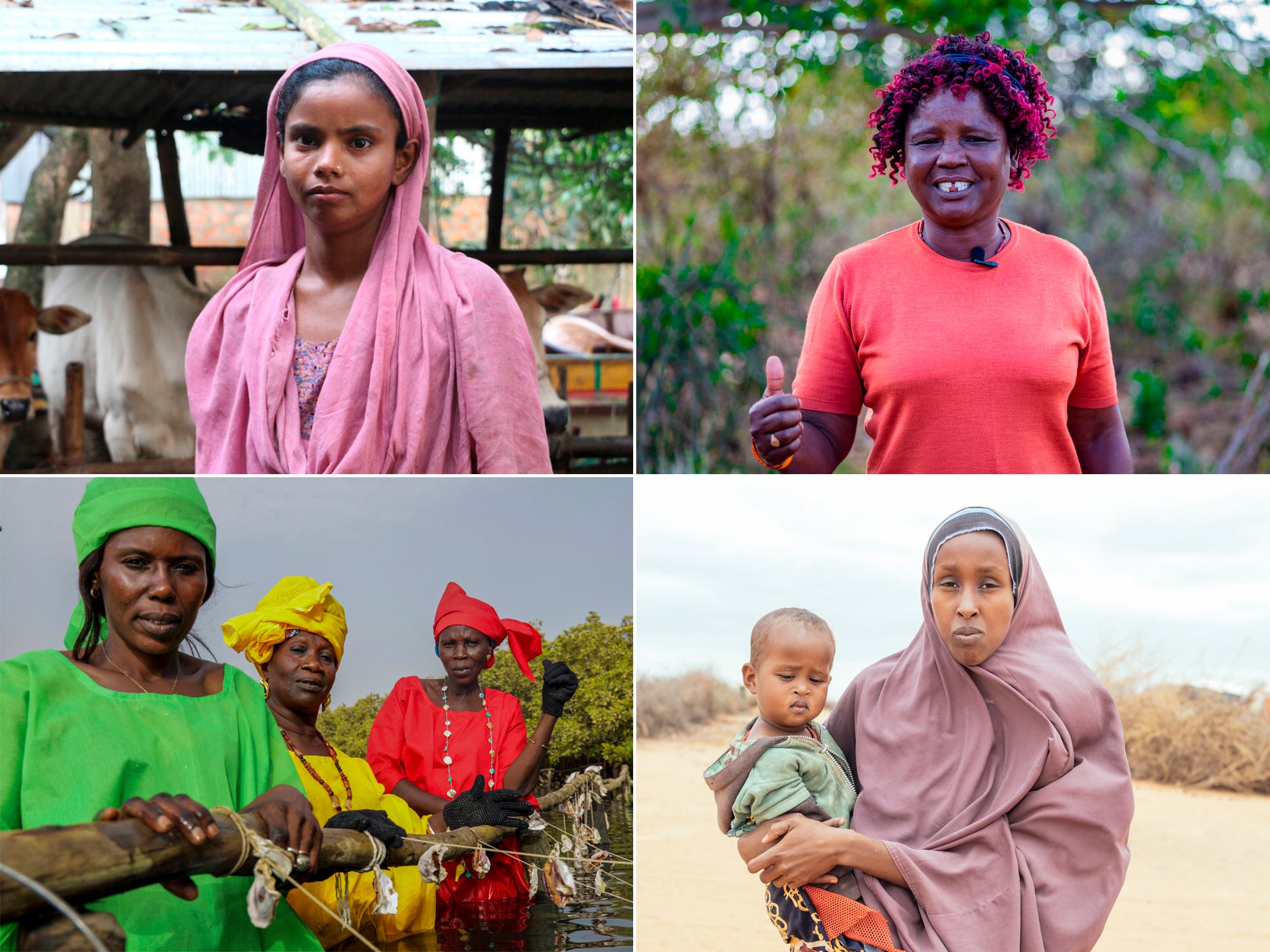
Your support helps us to tell the story
From reproductive rights to climate change to Big Tech, The Independent is on the ground when the story is developing. Whether it's investigating the financials of Elon Musk's pro-Trump PAC or producing our latest documentary, 'The A Word', which shines a light on the American women fighting for reproductive rights, we know how important it is to parse out the facts from the messaging.
At such a critical moment in US history, we need reporters on the ground. Your donation allows us to keep sending journalists to speak to both sides of the story.
The Independent is trusted by Americans across the entire political spectrum. And unlike many other quality news outlets, we choose not to lock Americans out of our reporting and analysis with paywalls. We believe quality journalism should be available to everyone, paid for by those who can afford it.
Your support makes all the difference.This has been a year of climate catastrophes from floods in Pakistan and Nigeria to the worst droughts on record across the Horn of Africa. Among the least insulated and most disproportionately affected are women and girls.
As Cop27 reaches it final day, it is vital that these women are central to the climate conversation - yet their stories are all too often just a footnote.
ActionAid research recently found how climate change is increasing gender-based violence and damaging women’s mental health, as women and girls are being pushed to drop out of school or marry early, to help manage the financial stress that their families face during droughts or floods.
Women featured in this photo essay are looking to world leaders to scale up community focused financial support to help them adapt and become more resilient to future impacts.
Bangladesh
In June 2022 the Badaghat union of Bishwamvarpur upazila in northeastern Bangladesh was hit with the worst flash floods the country has seen in 100 years. There was widespread decimation of transport, communications networks and clean water facilities leaving thousands with extremely limited access to food. Estimates predict that 4 million people were left stranded including 1.6 million children.
Bangladesh is one of the most climate-impacted countries in the world and is at constant risk of severe flooding.
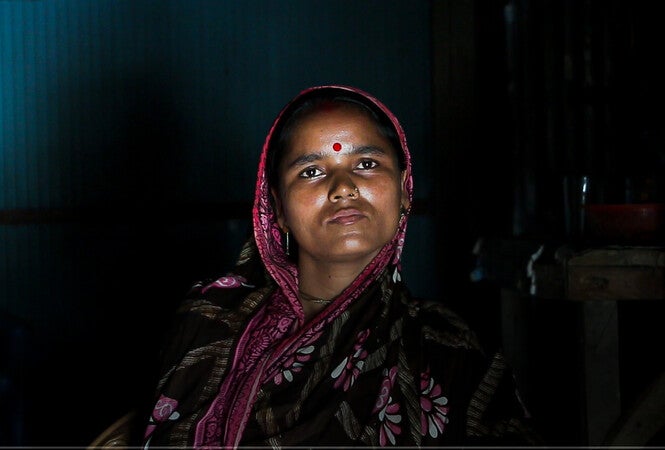
Sunati is a member of ActionAid Bangladesh’s Reflection Action circle. Her family of seven is dependent on her husband’s earning as a fisherman, but when there are floods, he cannot fish, and his earnings vanish. The family home and surrounding area becomes filthy and muddy when there is flooding and unhygienic - leaving them with almost nothing.
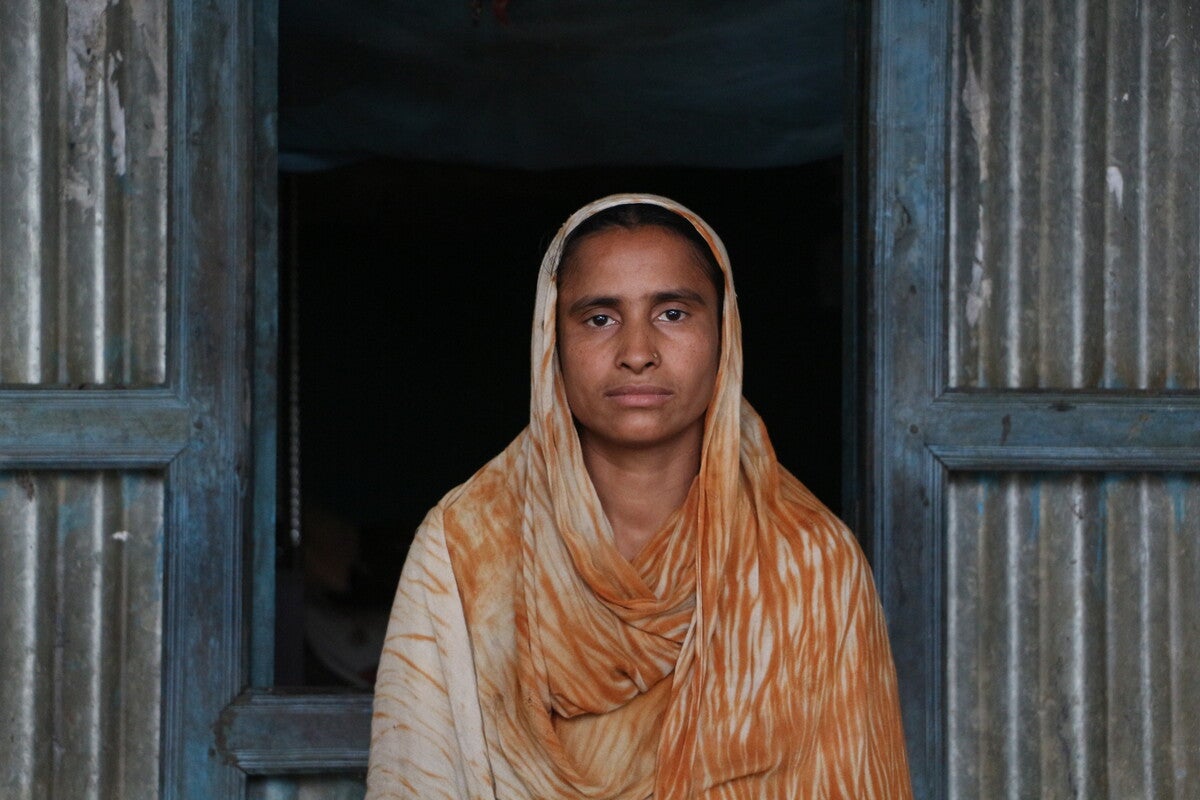
Aseda’s husband is a day labourer and now struggling to find any work due to the floods. Her family has been living a life with scarcity of food, safe drinking water, hygiene, and other necessary commodities since the flooding occured. She is apprehensive about her children’s education and how her family can turn around from the loss.
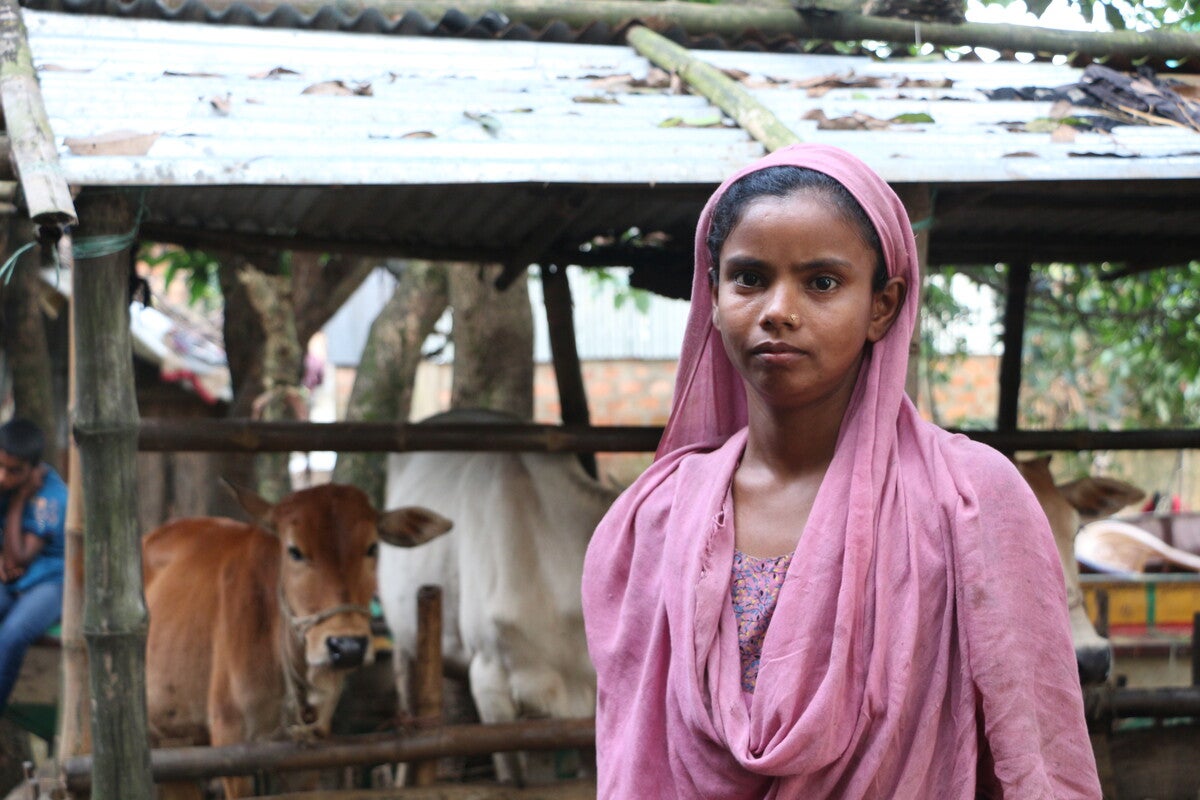
Shabana was badly affected by the flash floods earlier in June this year which washed away some of her livestock
She said: “We and my cattle are all now starving. I don’t even know how we will survive the coming days. We can only survive if the cows survive, as they are our only asset and source of livelihood now.”
Kenya
As a marginalised community, Pokot women from Tangulbei, Kenya, are all too used to experiencing severe impacts of climate crises. As well as commonly being the main breadwinners - they are also the ones leading the way to provide the solutions.
Many are now leading a movement empowering over 3,000 women in their communities to address climate justice through the establishment and diversification of income-generating activities, by encouraging small-scale businesses and promoting women’s financial inclusion projects.
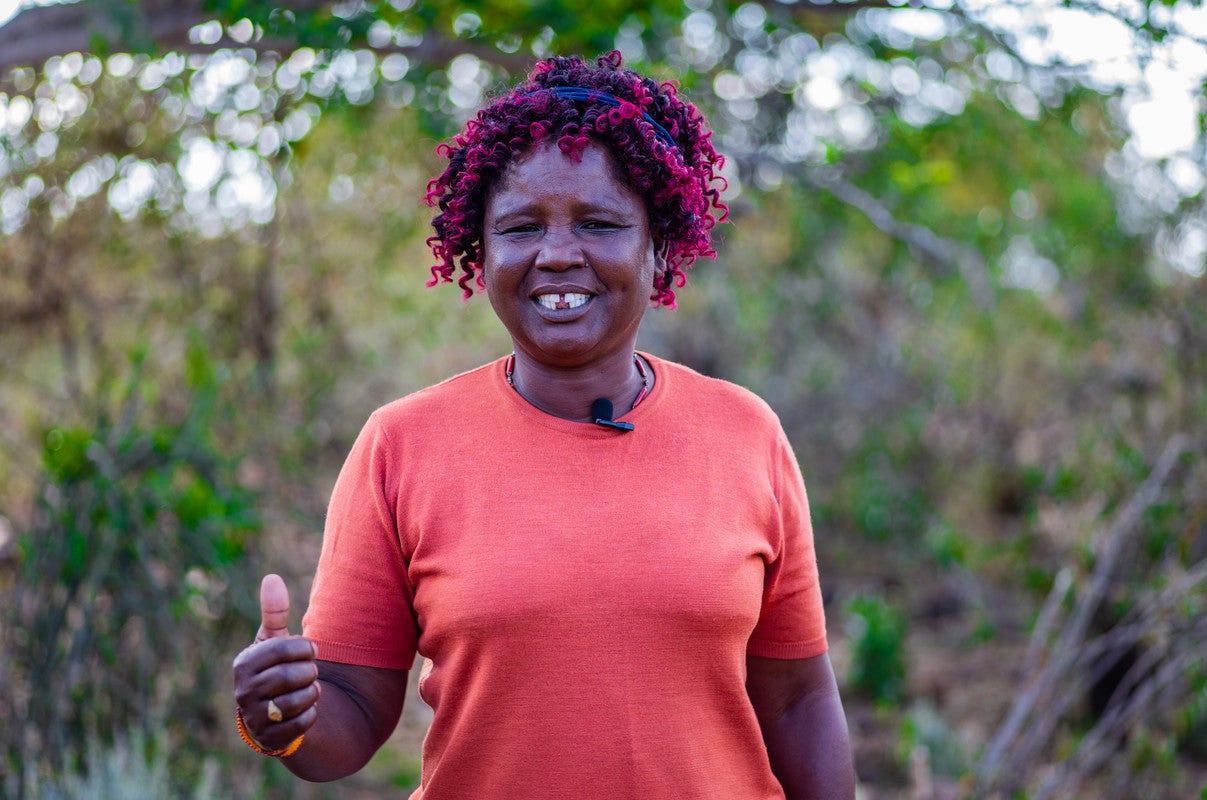
As the climate crisis worsens, Jeniffer has focused on teaching women how to adapt their sources of income, turn to small businesses and abandon their unproductive farms due to rapid weather changes and irregular rain patterns.
She organised a five-day climb to the peak of Mt Kilimanjaro to demand land and natural resource rights for women, through the implementation of an inclusive African Women’s charter.
Jeniffer said: “Girls are no longer going to school because of climate change as they don’t have food. For the girls at the moment, the issue of forced child marriage is at its highest point because of hunger. Girls are being married off because their community count them as wealth.”
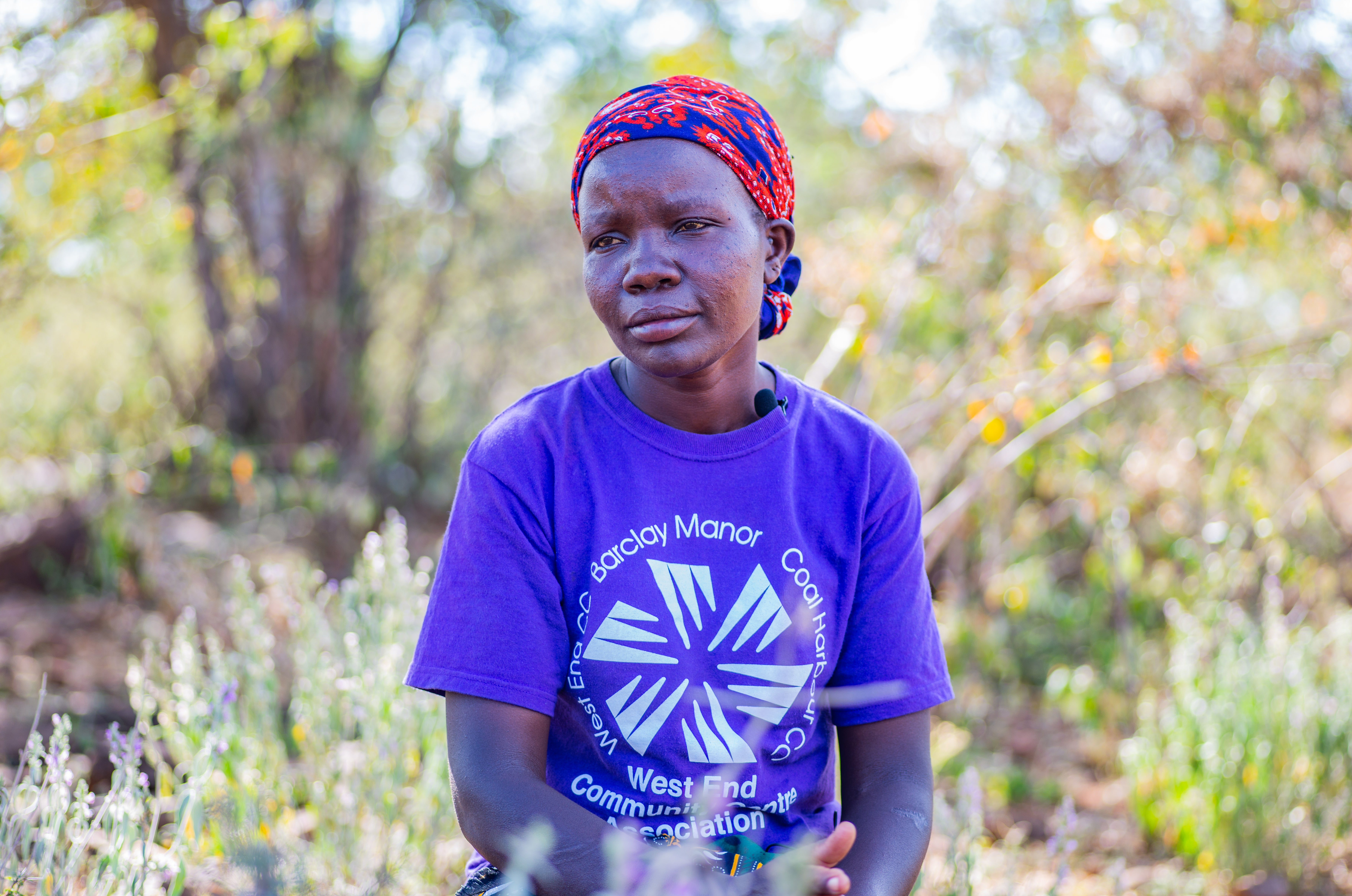
Susan lives in Tangulbei and has shown her resolve in the face of increasing climate shocks. With over 90% of open water sources drying up in northern Kenya, the well she spend hours queuing for is a resource so scarce that it fuels conflict.
She, like many other women, worry about the safety when walking long distances to fetch water. There is a high prevalence of violence and rape especially around the few remaining water holes, but she has no choice but to go to these sources of water.
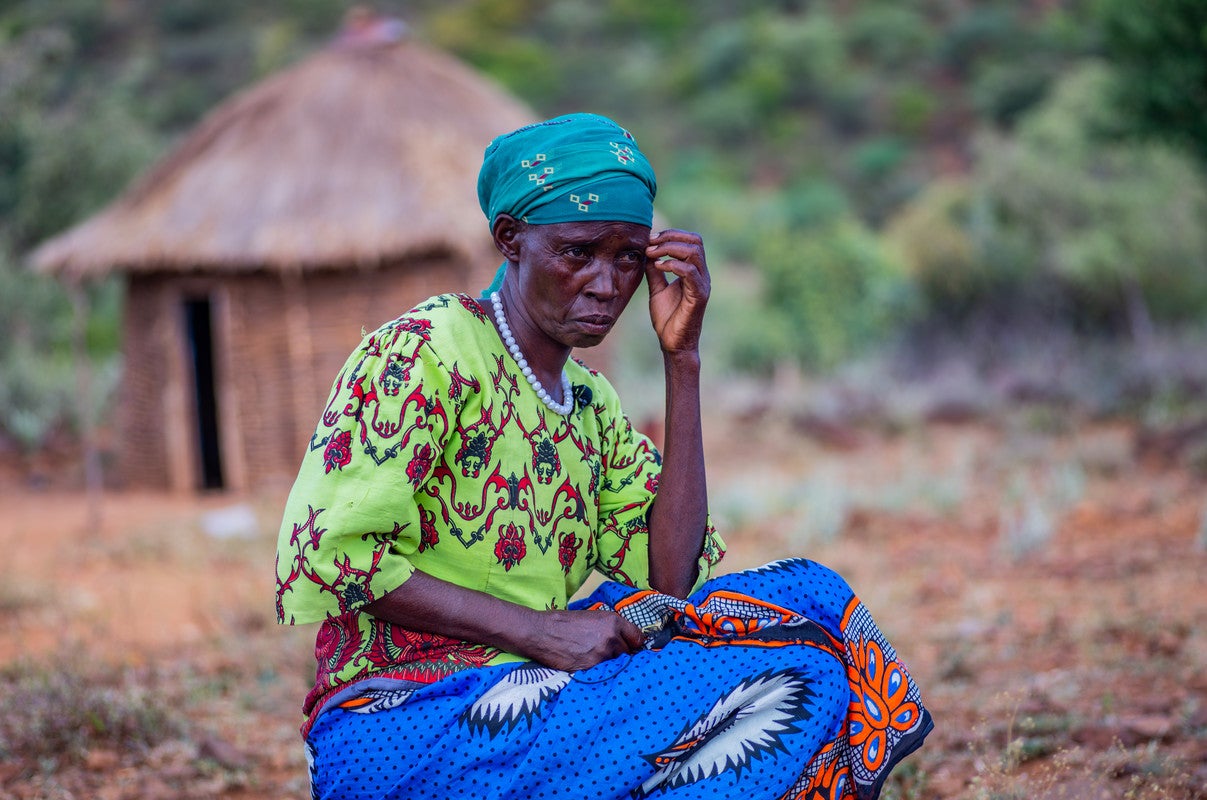
Ruth Aule abandoned farming after the rivers close to her farm dried up and the rains became irregular. She resorted to selling cakes for a small income, although most days she comes back empty-handed.
Her young daughter had an unwanted pregnancy which has put further financial stress on the family. As her daughter needed to go back to school and finish her primary school exams, Ruth cannot trade anymore.
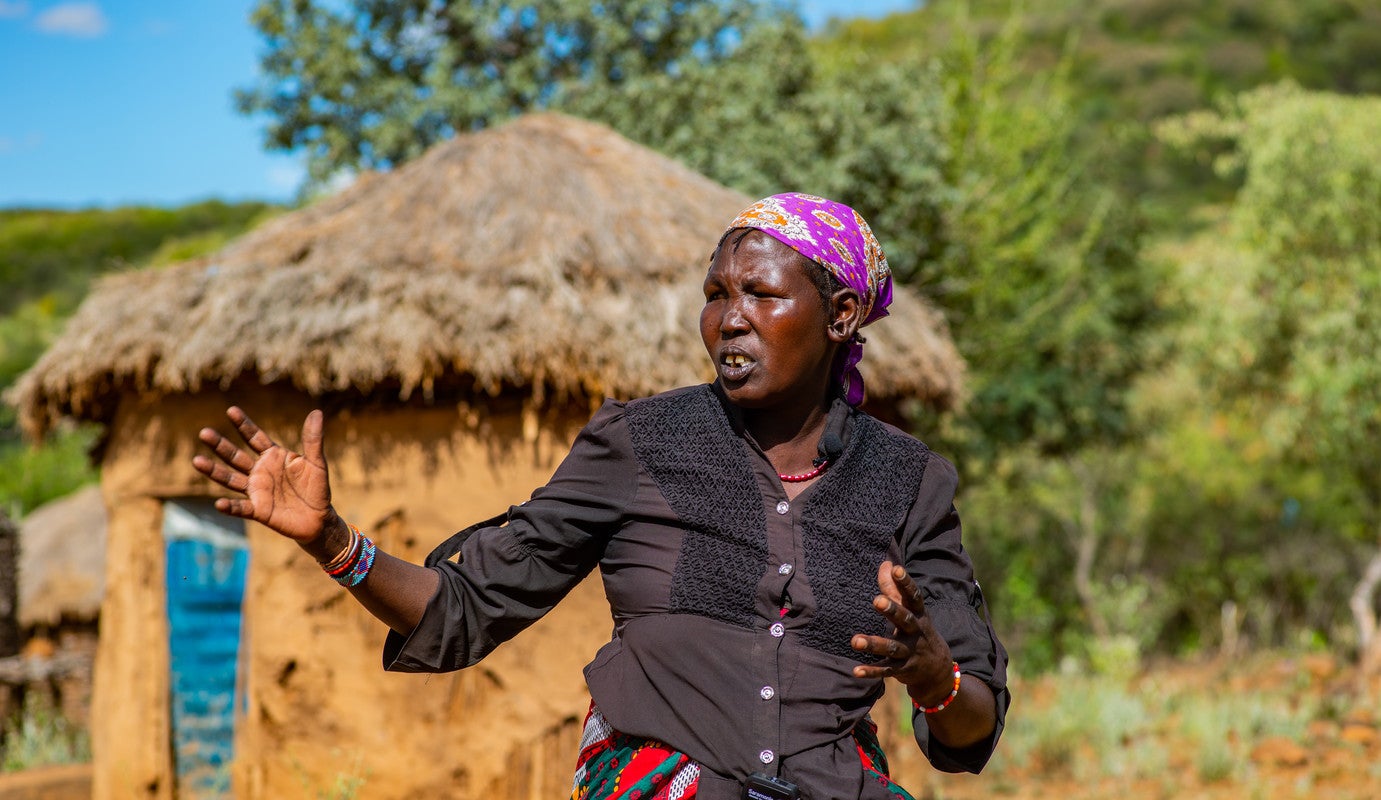
Chepleke says when she was younger there were many rivers freely flowing close to her home. She is now a widow who struggles to find drinking water after these rivers have dried up, leaving her community to fight over rapidly dwindling resources.
She resorted to brewing for a more stable source of income and pleads for world leaders to provide a sustainable source of water close to her that feeds and sustains her community while helping her to pursue a viable income.
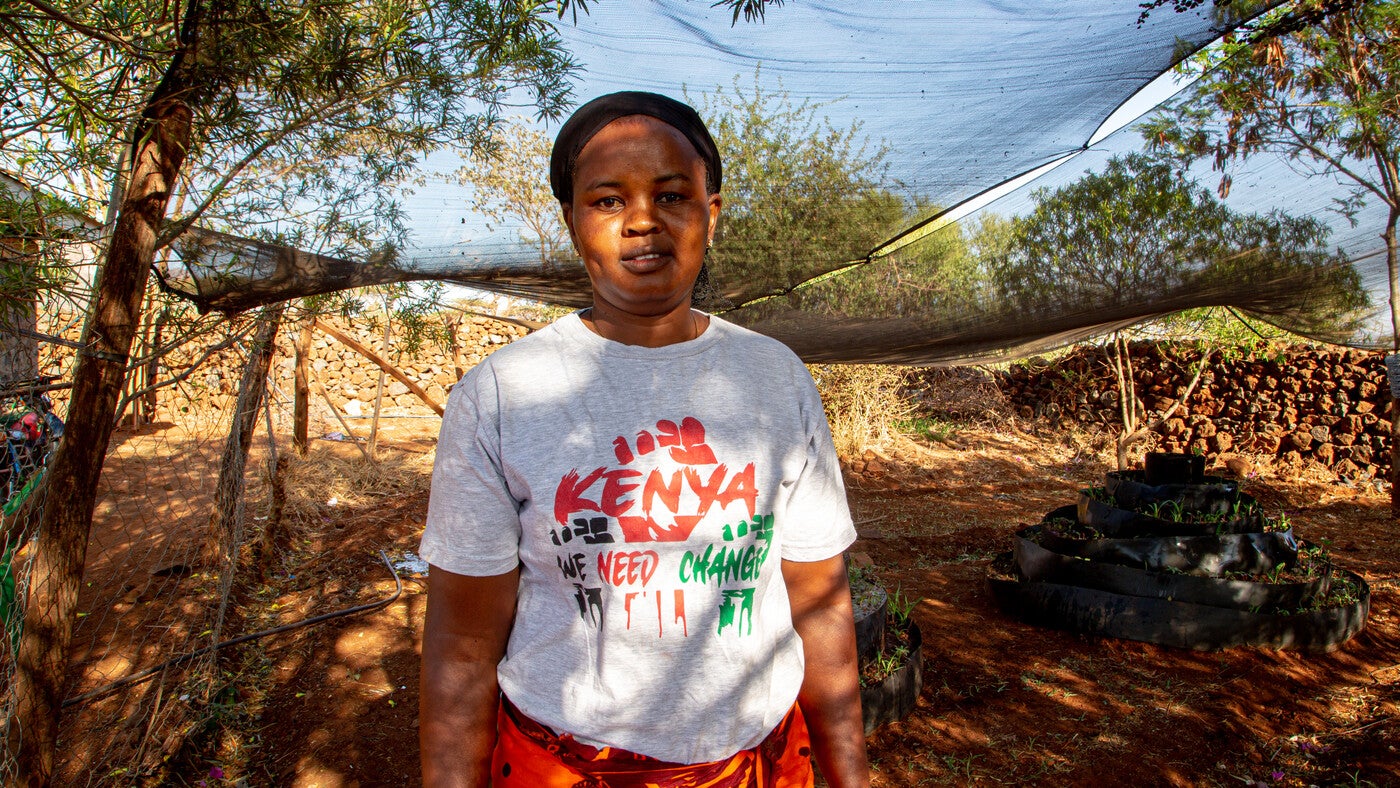
Amina’s village is currently experiencing a drought and her children must walk far to collect water. The drought is impacting women’s and girls’ safety in the area, including rape and domestic violence increases, and a rise in early marriages.
She is also involved with an education group that supports women with weather predictions to help navigate planting and weather changes. They update the community through social media and warn people of the seasons ahead.
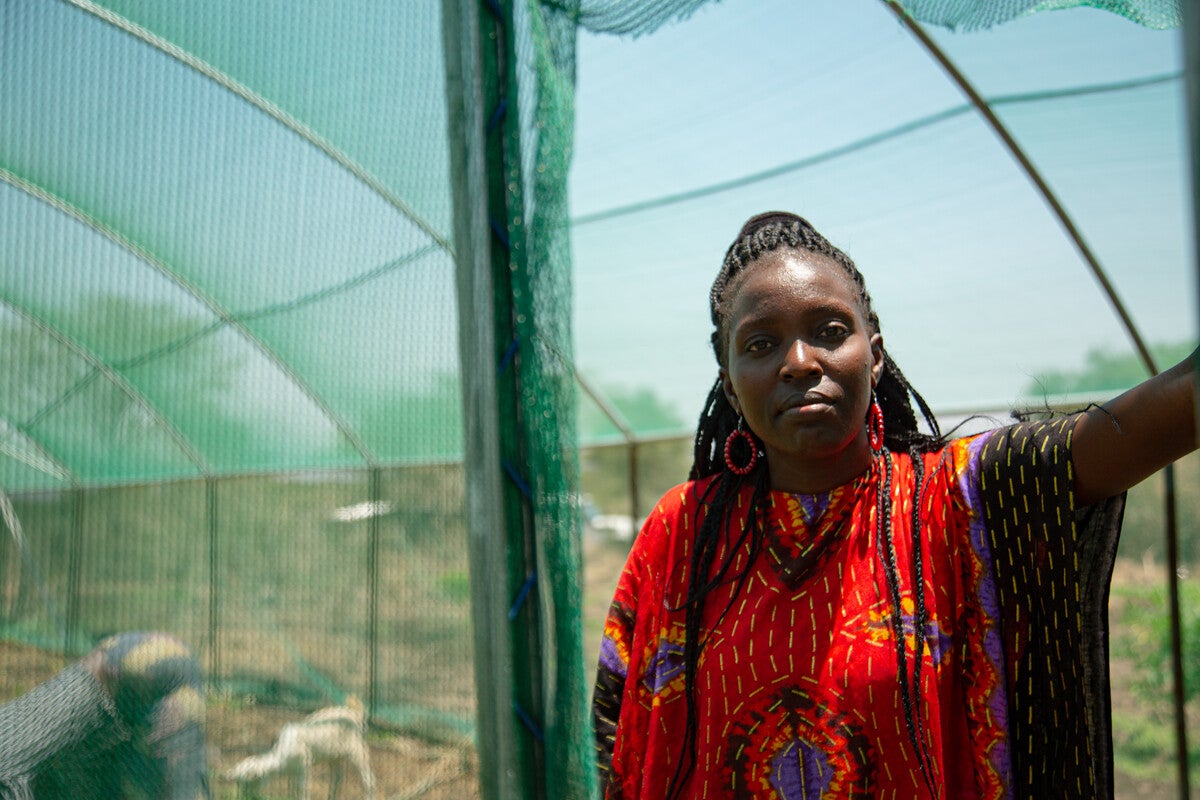
The impact on women and girls is staggering, Rosemary has seen a rise in girls dropping out of school and young girls getting into early marriages due to shortage of food.
Somaliland
East Africa is facing its worst food crisis for decades, following four years of failed harvests, erratic rainfall and rocketing global food prices. Up to 20 million people in Kenya, Somalia and Ethiopia are going hungry every day, with severe malnutrition amongst infants and young children.
ActionAid is providing emergency aid in the form of food, livelihoods and water. They are also providing long-term development actions which are building resilience in the communities, like fruit and vegetable gardens, adopting agroecology and supporting communities to create water with more than 27, 998 households benefitting, but there is an urgent need to scale up this response to save lives and livelihoods.
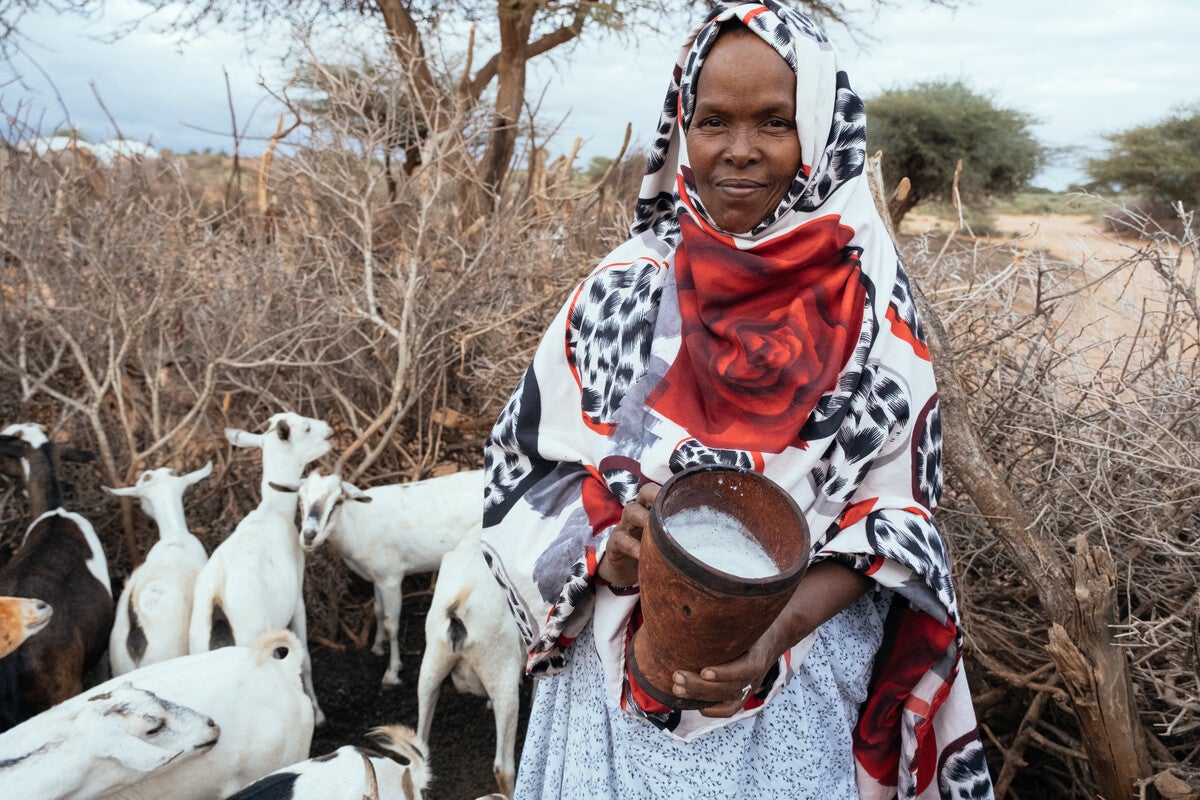
Mother of six Deeqa, 45, has lost most of her livestock due to drought as she doesn’t have enough money to buy them grain.
The current drought is worse than those that have come before, due to extreme weather changes and its impact has been exacerbated due to inflation which has caused food prices to spiral upwards.
Young mother Shamsa, 25, lost her livestock in the 2017 drought and was forced to move to a displacement camp, with her family.
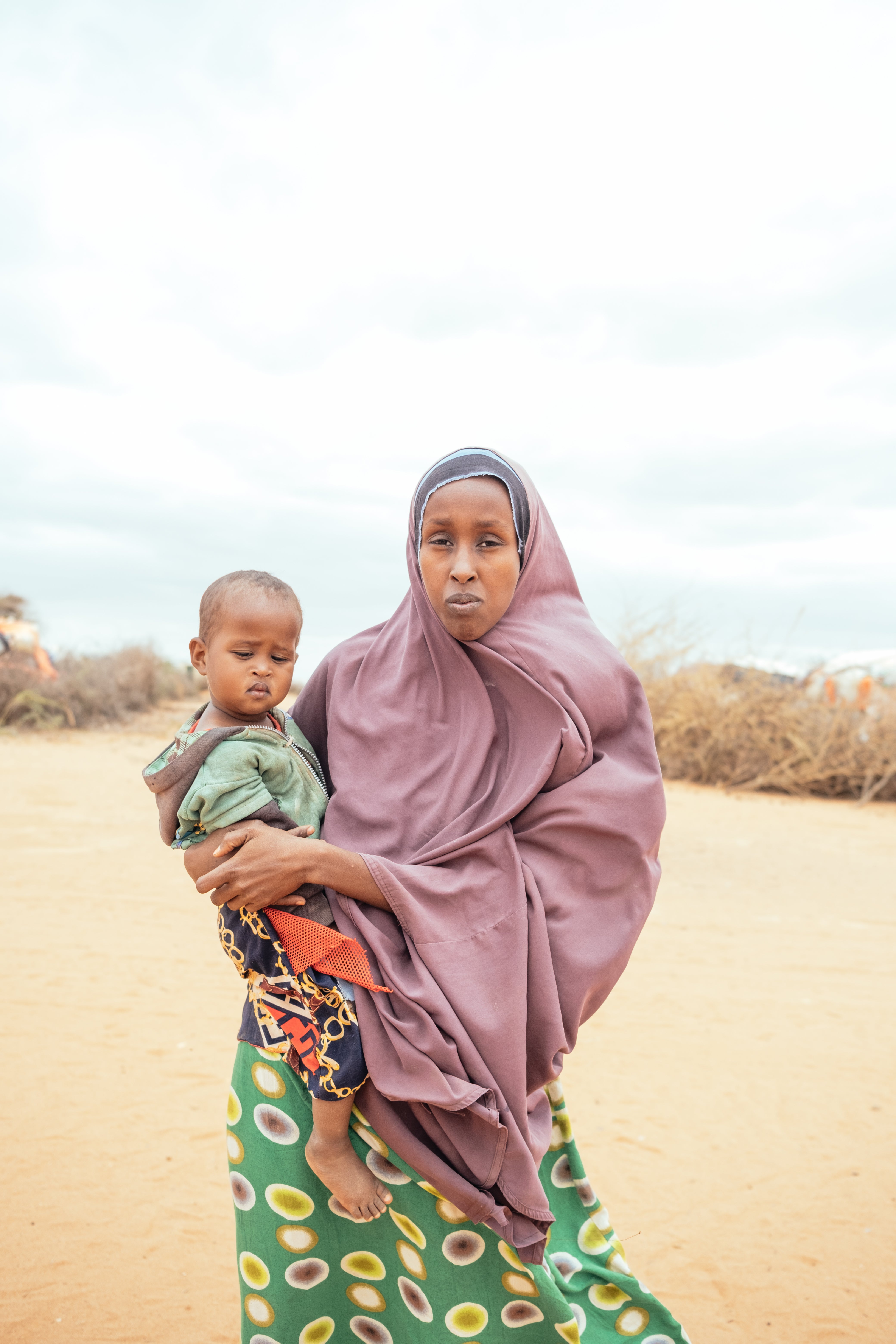
Her family rely on the support of humanitarian organisations like ActionAid to provide food packages, cash transfers, and other necessities.
“Life in the camp is difficult,” Shamsa, said. “We have nothing here because we don’t have proper shelter, food, water, and the other basic necessities.”
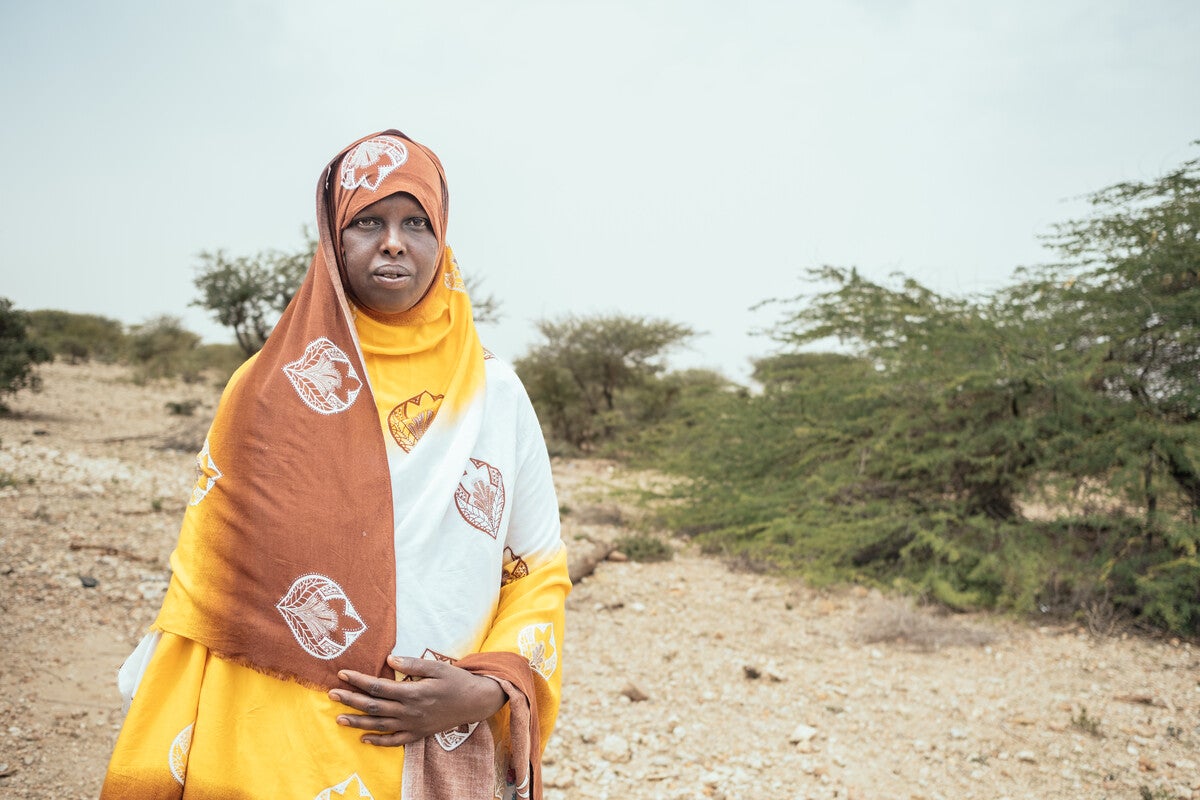
Crops that usually feed Sada’s family have died due to a lack of water and they are no longer able to sell their livestock, which have become sick and weak.
She has noticed an increase in drought over the past few years as the rainfall reduces and becomes less frequent. Sada received a kit from ActionAid Somaliland, which she says has helped her at a time when the family has no income.
Maya Island, Senegal
The island of Maya in Senegal is home to mangrove swamps rich in biodiversity. Rising sea levels have impacted fishing and shellfish gathering which have sustained human life there.
Increased intensity of storm surges has led to coastal erosion and flooding of farmland. The high levels of salt in the soil make it impossible to cultivate the fruit, vegetables and rice that were an everyday staple in the past.
There is only one primary school on Maya, so children need to make a 4km journey to get to secondary school – due to rising sea levels this journey has become dangerous.
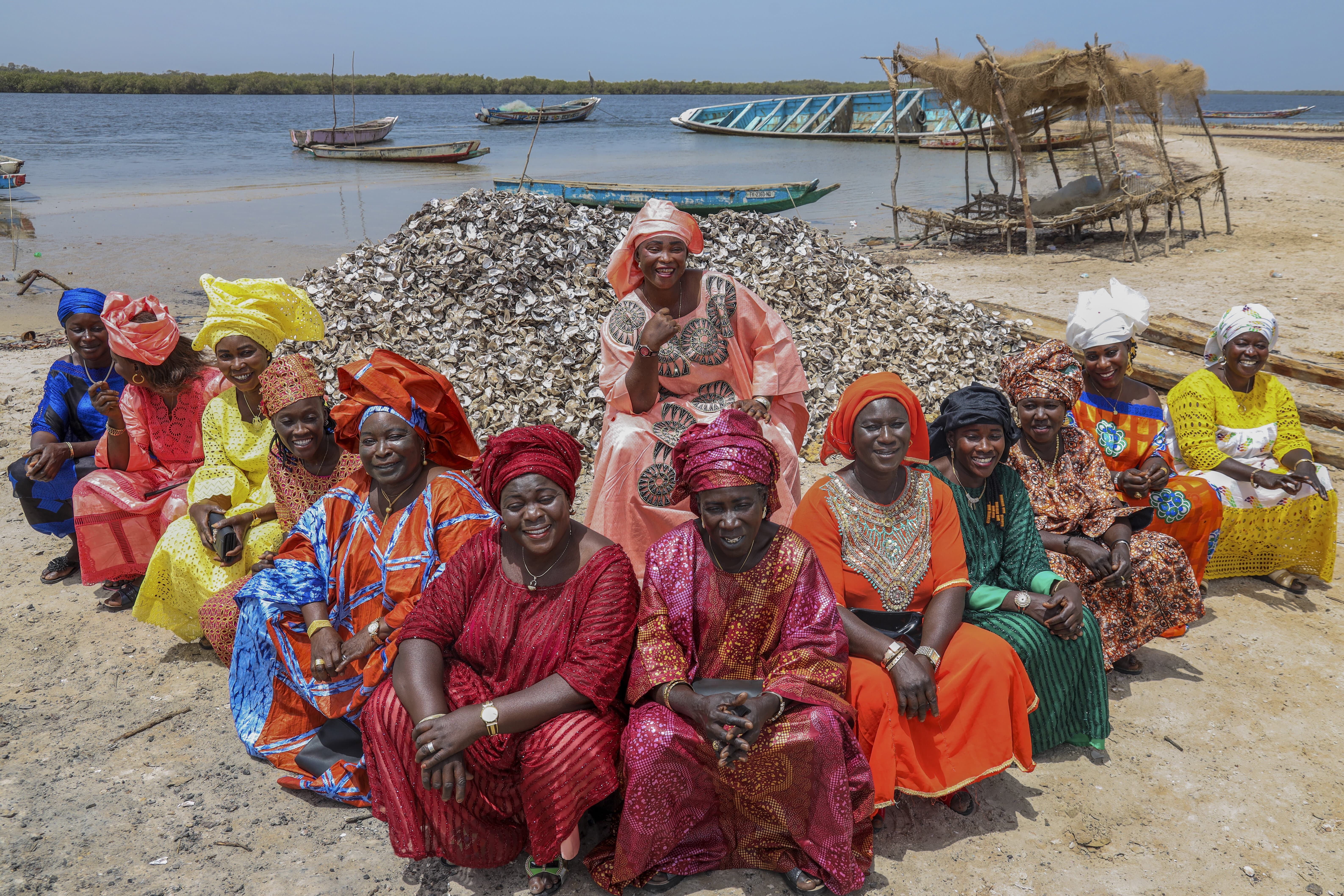
The local community installed a wooden bridge for students to make the journey to the neighbouring island of Djrinda easier. But over time, the water has heavily damaged it and there is now a real problem keeping children in school.
Aida, 40, is dedicated to fighting the rising sea levels. She is community development worker and a matron at the local ‘health hut’ on the island.
Aida said: “Can you imagine that when I came here in 1998, there were a lot of trees around here, but today you can see for yourself that there are no more trees and even the grass dries up due to the rise in sea level making the soil saltier.”
“Our children who attend the school of Djirnda often miss their lessons because they cannot get to school and this obviously has an impact on their results.”
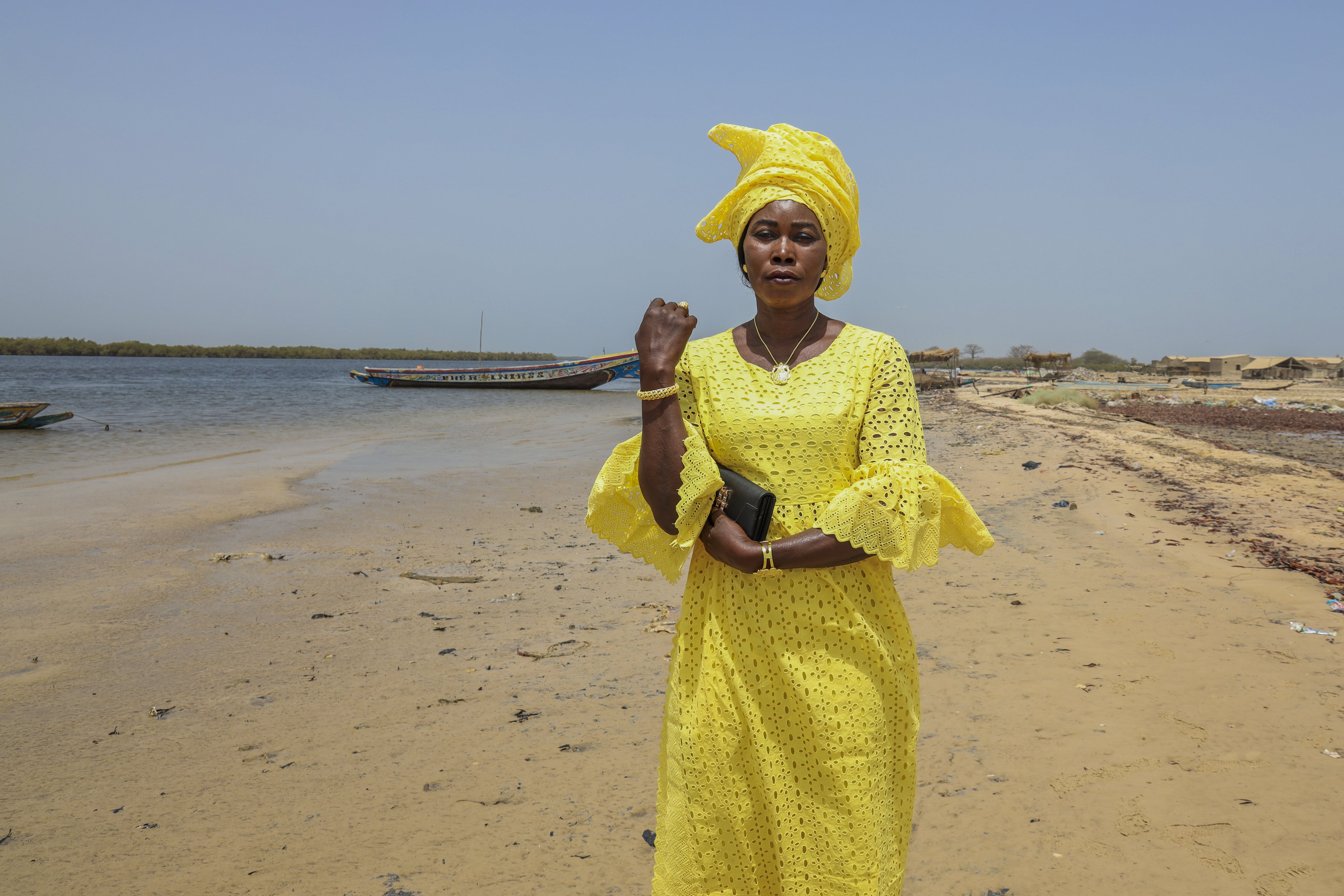
Kady, 40, works as a fisherwoman and has had to adapt to rising sea levels in her village. She was involved in helping to build a bridge so that their children can get to school on the neighbouring island of Djrinda.
Amy is president of the GIE, a local women’s group that focuses on planting mangroves in order to fight the impact of climate change. She worries for the future of her children and wants them to have a good education. She believes women should oversee local initiatives to tackle the rising sea levels and the government should have more respect for the work they do.
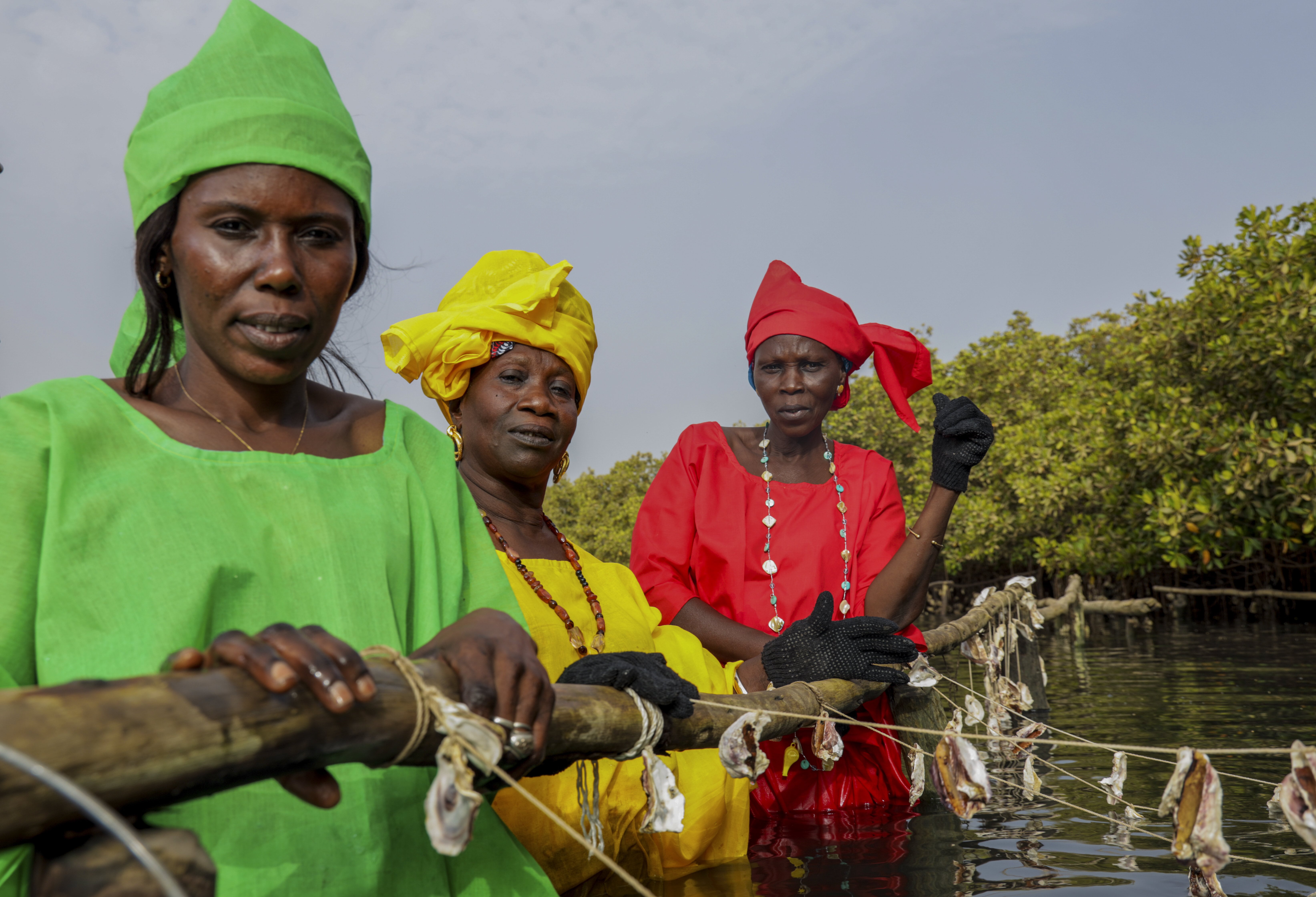
ActionAid is an international charity that works with women and girls living in poverty. We are ending violence and fighting poverty so that all women, everywhere, can create the future they want. Learn about our vision, our mission, our approach, and our impact here.
Join our commenting forum
Join thought-provoking conversations, follow other Independent readers and see their replies
Comments